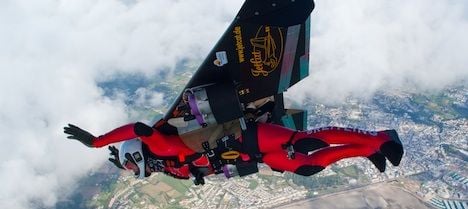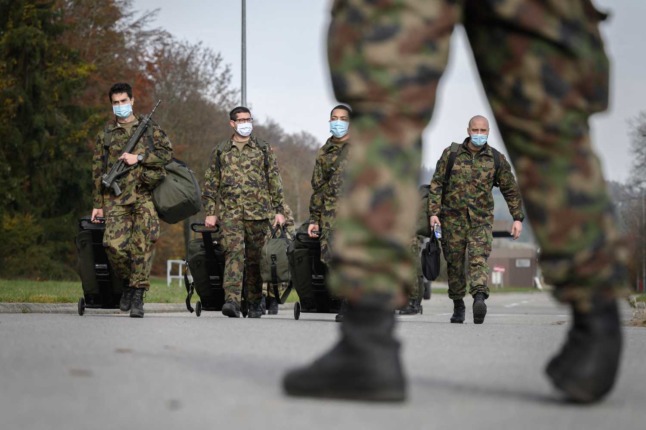Yves Rossy will be dropped from a helicopter high above the world-famous US landmark and make a series of loops, powered only by a winged jet-pack, before in theory landing on the floor of the immense geological fissure.
Unlike in his 2008 record-breaking flight across the English Channel from France to Britain, the 51-year-old will not cross the Grand Canyon from one side to the other, but instead spend 15 minutes in acrobatic flight over the miles-wide gorge.
Last November he performed a similar feat in the skies above the Swiss canyon of Vaud.
In September 2008 Rossy, whose jet-pack can reach speeds of around 200 kilometers (124 miles) an hour, gained international attention when he became the first winged person to make a successful crossing of the Channel.
He covered the 35 kilometers (21 miles) in around 10 minutes, with his nearly 2.5-meter-wide rocket-powered wings strapped to his back.
In Friday’s flight he will be dropped at 9:00 am (1600 GMT) from an altitude of 1,300 meters (4,200 feet) above Guano Point, a spectacular outcrop on the western side of the Grand Canyon.
After performing a series of aerial loops he will release his parachute to float to the floor of the canyon, which is about 1,200 meters deep, his team told AFP.
The Hualapai, a Native American tribe which manages the area, will dance and pray before Rossy takes off for his latest exploit.
A former Mirage III fighter pilot, Rossy – who has previously been dubbed “RocketMan” and “FusionMan” – flies using a science fiction-style rocket pack powered by four jet engines.
While his English Channel and Swiss flights were successful, Rossy failed in a November 2009 attempt to cross the Straits of Gibraltar between Africa and Europe.
He ended up in the sea after high winds and clouds forced him to abandon the bid, although he was fished out safe and sound.
For his Swiss flying exploits he developed, in collaboration with the company RUAG, a smaller version of his jet-pack with wings clipped to two meters (six feet) wide.
The new model has “a better aerodynamic profile, with more stability,” making it able to make acrobatic maneuvers possible, he said at the time.



 Please whitelist us to continue reading.
Please whitelist us to continue reading.